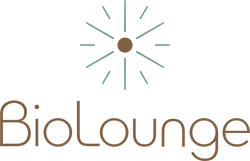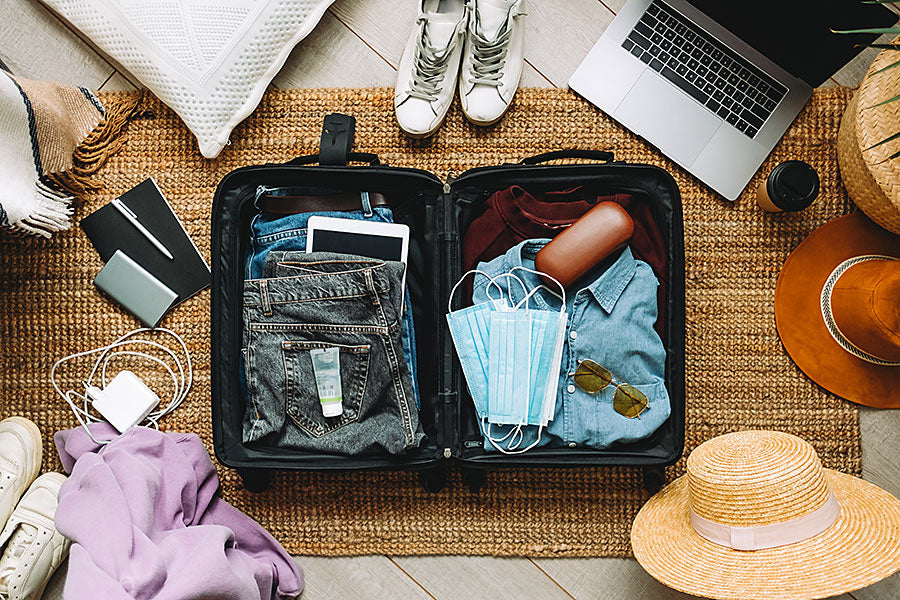#1 Wash hands regularly
Washing your hands with warm water and soap for at least 30 seconds, scrubbing palms, tops, surface of your hands and under and around nail beds is more effective at preventing viral transmission than using hand sanitizer when done correctly and regularly. This is even more important before eating and prior to touching your eyes, nose or mouth.
#2 Carry hand sanitizer
While handwashing is preferred, we don't always have access to soap and water. In a bind, using a hand sanitizer with at least 60% alcohol is effective for killing bacteria and viruses, including COVID-19.
#3 Pack your Neti pot
Irrigating your nose with salt water and a Neti pot or saline nasal spray such as Xlear has been shown to reduce incidence of upper respiratory symptoms and duration. The mucosal membranes and hair within the nose are meant to trap microbes so instead of inhaling them further into the body, wash them out.
#4 Stay regular
Getting backed up after travel is common. However, most people don't know that constipation has been shown to weaken immune function. With constipation, prevention is much more powerful than trying to catch up. Read Megan's recent blog to learn how to prevent travel constipation (or any constipation for that matter).
#5 Eat spices and herbs
Studies have correlated communities that regularly eat spices and herbs to reduced incidence of COVID-19. Herbs such as oregano, ginger, thyme, mint, clove and garlic have all been shown to work as antimicrobials within the body. Raw garlic is a common recommendation in our clinic for it's powerful antifungal properties. Additionally, capsaicin, the element that gives hot peppers their spice, has been shown to modulate the immune system, increasing TNF-alpha, an important protein that helps us fight infection.
#6 Don't go off the rails with sweets and alcohol
Vacation and holidays can mean more sweets and alcohol than normal. However, both sugar and alcohol suppress healthy immune function and drive inflammation. In fact, sugar has been shown to suppress immune function within 30-minutes of eating it and the effects can last over 5 hours!!! Imagine what this does to an immune system if you're eating sugar at every meal.
Balance out your diet while traveling and socializing by focusing on plenty of vegetables and fruit. Brightly colored veggies and fruits contain antioxidants that promote a healthy immune system and different colors provide different antioxidants.
#7 Sleep, rest, relax
Sleep routines are easily disrupted by travel and vacation. Using a time-released melatonin supplement to adjust your body to a new time zone or new schedule can be safe and effective. Getting adequate sleep will support a healthy immune response. Remember, vacations are meant to give you a break so carve out plenty of time for rest and relaxation so you return home rested and not more exhausted than when you left.
#8 Increase immune promoting vitamins and minerals
There are a handful of well known and well-researched micronutrients that are critical for healthy immune function. Boosting these levels before and during travel can help your immune system weather increased pressure. Dosages vary based on age, size and diet. You can find a list of immune promoting foods here.
- Zinc
- Vitamin C
- Vitamin E
- Vitamin B6
- Folate
- Vitamin D
- Vitamin A
- Selenium
We wish you safe travels and a healthy and happy holiday!
About Megan Barnett, MS
 Megan Barnett is a functional medicine practitioner in Portland, Oregon. In her clinical practice, she helps patients identify the root cause of their health problems, then designs individualized and evidence-based approaches to alleviate symptoms and help their bodies heal. She has a Bachelor of Science in Dietetics from Kansas State University and a Master of Science in Nutrition and Functional Medicine from University of Western States.
Megan Barnett is a functional medicine practitioner in Portland, Oregon. In her clinical practice, she helps patients identify the root cause of their health problems, then designs individualized and evidence-based approaches to alleviate symptoms and help their bodies heal. She has a Bachelor of Science in Dietetics from Kansas State University and a Master of Science in Nutrition and Functional Medicine from University of Western States.

